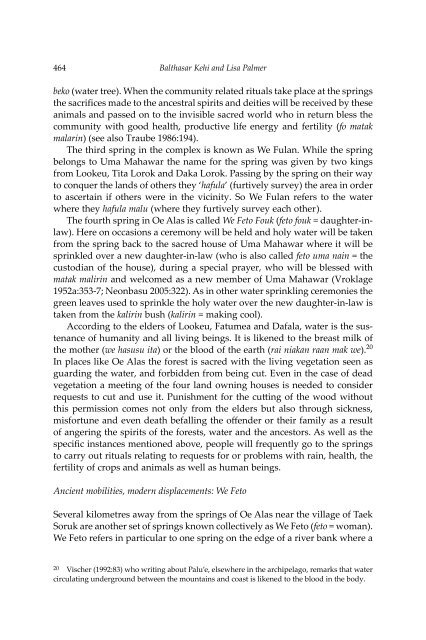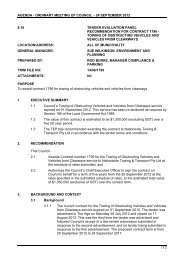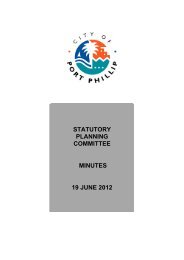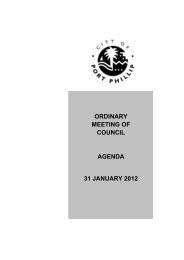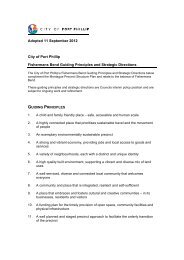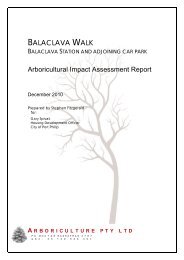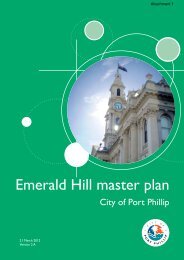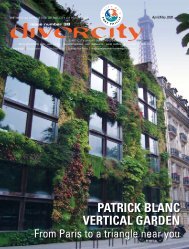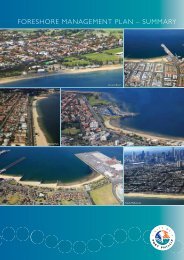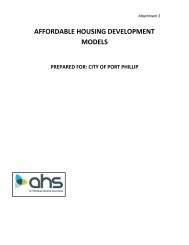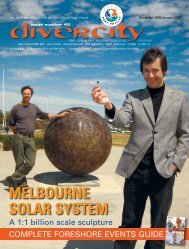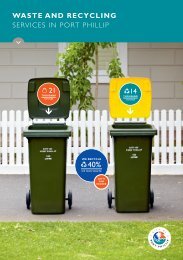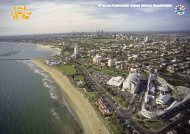Create successful ePaper yourself
Turn your PDF publications into a flip-book with our unique Google optimized e-Paper software.
464<br />
Balthasar <strong>Kehi</strong> <strong>and</strong> Lisa <strong>Palmer</strong><br />
beko (water tree). When the community related rituals take place at the springs<br />
the sacrifices made to the ancestral spirits <strong>and</strong> deities will be received by these<br />
animals <strong>and</strong> passed on to the invisible sacred world who in return bless the<br />
community with good health, productive life energy <strong>and</strong> fertility (fo matak<br />
malarin) (see also Traube 1986:194).<br />
The third spring in the complex is known as We Fulan. While the spring<br />
belongs to Uma Mahawar the name for the spring was given by two kings<br />
from Lookeu, Tita Lorok <strong>and</strong> Daka Lorok. Passing by the spring on their way<br />
to conquer the l<strong>and</strong>s <strong>of</strong> others they ‘hafula’ (furtively survey) the area in order<br />
to ascertain if others were in the vicinity. So We Fulan refers to the water<br />
where they hafula malu (where they furtively survey each other).<br />
The fourth spring in Oe Alas is called We Feto Fouk (feto fouk = daughter-inlaw).<br />
Here on occasions a ceremony will be held <strong>and</strong> holy water will be taken<br />
from the spring back to the sacred house <strong>of</strong> Uma Mahawar where it will be<br />
sprinkled over a new daughter-in-law (who is also called feto uma nain = the<br />
custodian <strong>of</strong> the house), during a special prayer, who will be blessed with<br />
matak malirin <strong>and</strong> welcomed as a new member <strong>of</strong> Uma Mahawar (Vroklage<br />
1952a:353-7; Neonbasu 2005:322). As in other water sprinkling ceremonies the<br />
green leaves used to sprinkle the holy water over the new daughter-in-law is<br />
taken from the kalirin bush (kalirin = making cool).<br />
According to the elders <strong>of</strong> Lookeu, Fatumea <strong>and</strong> Dafala, water is the sustenance<br />
<strong>of</strong> humanity <strong>and</strong> all living beings. It is likened to the breast milk <strong>of</strong><br />
the mother (we hasusu ita) or the blood <strong>of</strong> the earth (rai niakan raan mak we). 20<br />
In places like Oe Alas the forest is sacred with the living vegetation seen as<br />
guarding the water, <strong>and</strong> forbidden from being cut. Even in the case <strong>of</strong> dead<br />
vegetation a meeting <strong>of</strong> the four l<strong>and</strong> owning houses is needed to consider<br />
requests to cut <strong>and</strong> use it. Punishment for the cutting <strong>of</strong> the wood without<br />
this permission comes not only from the elders but also through sickness,<br />
misfortune <strong>and</strong> even death befalling the <strong>of</strong>fender or their family as a result<br />
<strong>of</strong> angering the spirits <strong>of</strong> the forests, water <strong>and</strong> the ancestors. As well as the<br />
specific instances mentioned above, people will frequently go to the springs<br />
to carry out rituals relating to requests for or problems with rain, health, the<br />
fertility <strong>of</strong> crops <strong>and</strong> animals as well as human beings.<br />
Ancient mobilities, modern displacements: We Feto<br />
Several kilometres away from the springs <strong>of</strong> Oe Alas near the village <strong>of</strong> Taek<br />
Soruk are another set <strong>of</strong> springs known collectively as We Feto (feto = woman).<br />
We Feto refers in particular to one spring on the edge <strong>of</strong> a river bank where a<br />
20 Vischer (1992:83) who writing about Palu’e, elsewhere in the archipelago, remarks that water<br />
circulating underground between the mountains <strong>and</strong> coast is likened to the blood in the body.


